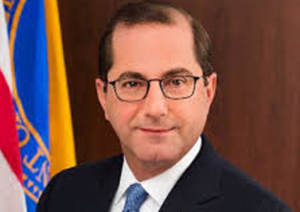The federal government would reduce its financial commitment to state Medicaid programs under the FY 2021 budget the Trump administration proposed earlier this month.
 While testifying before the Senate Appropriations Committee’s Subcommittee on Labor, Health and Human Services and Education, Health and Human Services Secretary Alex Azar acknowledged that the administration’s proposed FY 2021 would eliminate the enhanced rate at which the federal government matches state funds used to serve individuals who enrolled in Medicaid through the Affordable Care Act’s Medicaid expansion provision. That enhanced rate calls for the federal government to pay 100 percent of the costs associated with the Medicaid population during the first year of Medicaid expansion, eventually scaling down to 90 percent after 2020. Nationally, the federal government’s matching rate for the pre-expansion population is 57 percent; that matching rate would not be affected by this proposal.
While testifying before the Senate Appropriations Committee’s Subcommittee on Labor, Health and Human Services and Education, Health and Human Services Secretary Alex Azar acknowledged that the administration’s proposed FY 2021 would eliminate the enhanced rate at which the federal government matches state funds used to serve individuals who enrolled in Medicaid through the Affordable Care Act’s Medicaid expansion provision. That enhanced rate calls for the federal government to pay 100 percent of the costs associated with the Medicaid population during the first year of Medicaid expansion, eventually scaling down to 90 percent after 2020. Nationally, the federal government’s matching rate for the pre-expansion population is 57 percent; that matching rate would not be affected by this proposal.
This aspect of the administration’s proposed FY 2021 budget has mostly flown under the radar since the budget’s release and has received little public attention.
In explaining the proposal, Azar said that enhanced funding for the Affordable Care Act’s Medicaid expansion population was biased against the disabled, women, and children.
Such a policy change could be a blow to private safety-net hospitals in Medicaid expansion states.
Learn more about what Secretary Azar said about federal matching funds for state Medicaid programs in the McKnight’s Long-Term Care News article “Official confirms Trump budget proposed to eliminate enhanced Medicaid match.”

